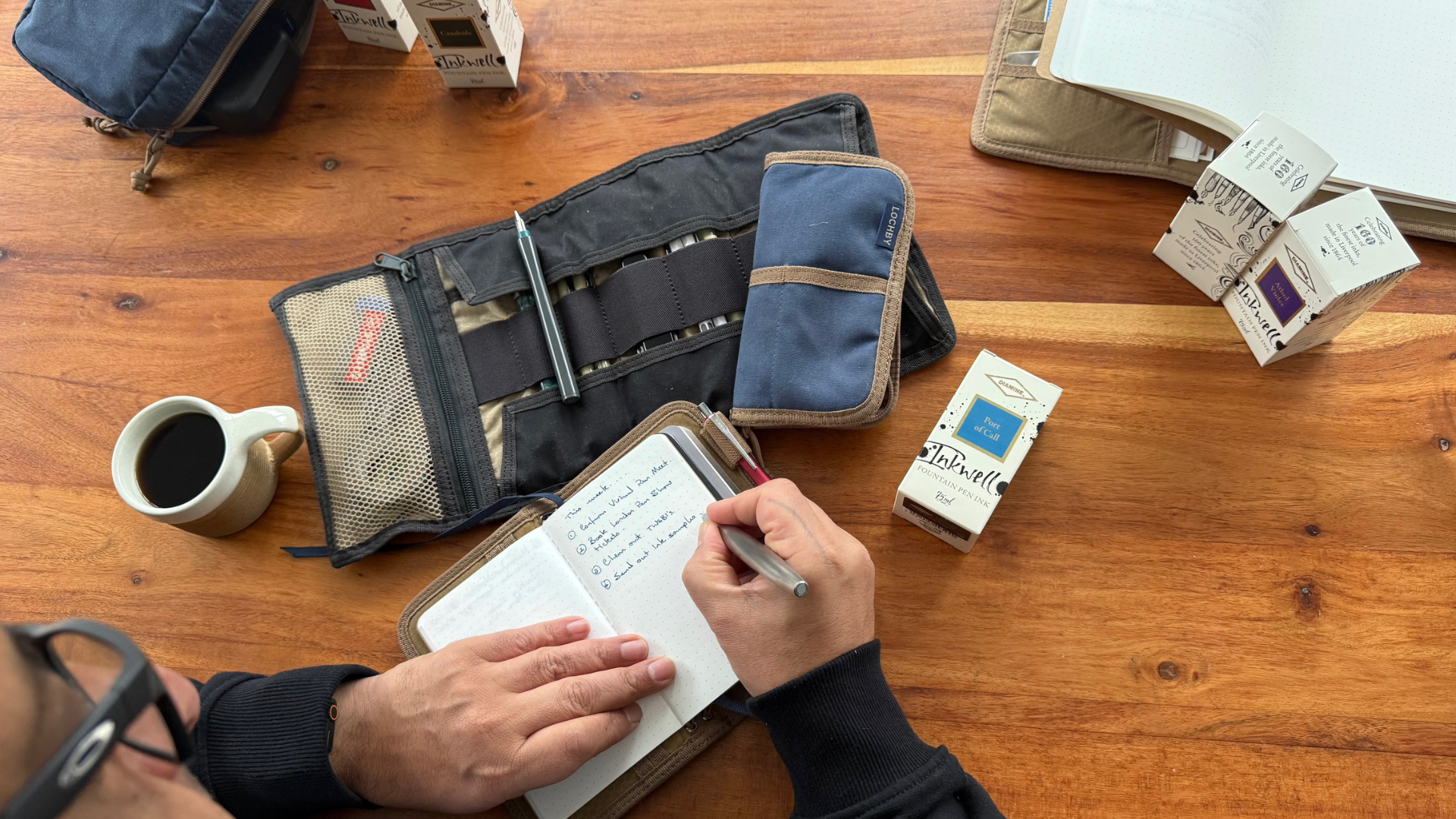It’s easy to tell ourselves that we’re going to journal everyday, but here’s the question: do we? Great job to everyone else who has their journaling schedule set in stone and can follow it, but this article is for the rest of us who can’t seem to complete a journaling streak—be it every day, a handful of times a week, or once a month.
There’s a lot of science-based proof that journaling is life-changing, and with this in mind, shouldn’t we all be journaling with gusto? And yet, here we are, journals as good as new with barely anything in them except for a few lines, maybe a paragraph or two, and the occasional doodle. Perhaps it has something to do with how we approach everything else that’s supposed to be good for us: we put it off for later until later becomes tomorrow, next week, three months… and before we know it, an entire year has passed us by.
This is why in today’s post, we want to talk about how saying “I’ll journal later” is the very thing that keeps you from enjoying its benefits—and what you can do to be more consistent starting now and moving forward!
1. Got 20 minutes? That’s more than enough!
While it’s true that many journalers make a ritual of journaling itself, this doesn’t mean you have to block out an hour out of your day for it. We all have lives to lead, and sometimes, we simply can’t dedicate sixty minutes just to write in our journals. However, this doesn’t mean we can’t journal at all. Even just twenty minutes, three days in a row out of seven a week, can have a positive impact: a study by researchers in New Zealand found that older adults who participated in expressive writing healed faster after a biopsy than those who didn’t. Another study back in 2005 also found improvements in not just psychological health but physical health too, thanks to expressive writing.
The expressive writing aspect of journaling is, of course, not a miracle cure, but the act was helpful in reducing stress and improving sleep. These two things led to a better functioning immune system and encouraged other bodily processes that helped with healing.
If you’re constantly on the go and a regular-sized journal feels too big to bring with you, then you’re in luck! The Pocket Journal is easy and convenient to carry, with enough space for other items on top of a journal refill: it has exterior and interior pockets for a pen, money, credit or debit cards, and even a passport—otherwise, you can just carry an additional refill. Whether it’s a trip from one state to the next, country to country, or just one meeting room after another, you’ll always be ready to journal during downtime whenever, wherever.
2. Don’t know what to write? Utilize prompts or take a break.
It can be amazing, but also mildly discouraging, to see journalers on social media share their notebooks. Filled from top to bottom with text, it’s a recurring theme from page to page: they have so much to say while we struggle to talk about our day—or even anything at all. But this isn’t limited to first-time journalers; even people who’ve been keeping one for many years can experience writer’s block, or worse, writer’s fatigue.
This is where prompts come in: if you’re stuck and unsure of what to write, looking up prompts can be very useful. It can be a word, phrase, question, scenario, or even a photo. The great thing about prompts is that they’re readily available (and free!) so it’s just a matter of choosing one that sparks your interest and gets you writing. But if you’re not the type to work with prompts, then maybe it’s time for a break.
The reason for this is because our brains eventually stop responding to constant stimulus over time, which impacts thought generation and our ability to be creative. Research suggests that short diversions can improve focus, so if you’ve been writing a lot—or doing nothing else but think of writing—do something else for a while. Ever wonder why some of our best ideas take shape in the shower? Not only are we relaxed, the act is similar to stepping back and giving our mind the rest it deserves so that it can restart and refocus when needed.
3. Too tired to journal? You can reschedule!
Sometimes, after a long and difficult day, the resulting physical and mental fatigue has us wanting nothing more but to lay back in bed and escape by sleeping it all away. And you know what? That’s perfectly ok! If the brain needs breaks to help with creativity, then it definitely requires downtime too.
In fact, according to a study, REM sleep plays a role in this: participants who took a nap that featured REM sleep were able to combine ideas in new ways because it “enhanced the formation of associative networks and the integration of unassociated information.” What this tells us is that REM sleep actually has a positive impact by allowing people to see connections between seemingly unrelated things. Giving our brain enough time to rest and recover can improve how we take an idea, word, or thought and associate it with a different context.
So if you need rest, then please rest. The key here is to reschedule your next journaling session instead of simply saying you’ll do it later. Do it when you wake up or the earliest you can.
Conclusion
Putting off journaling for later can easily become an excuse with no follow through, which isn’t helpful if we’re trying to build a habit out of it. With its many proven benefits that can improve the quality of our lives, it would be such a waste to miss out on what it has to offer just because we can’t accommodate it into our busy schedules. As the saying goes: if there’s a will, there’s a way. If we really want to get the most out of keeping a journal, then it’s high time we find ways to make it a permanent part of our life.
What other steps have you taken to make sure you keep up with your journal? Which ones worked out, and which ones did not? Let us know in the comments, and like always, keep on journaling!





Share:
Why Time Management Is The Best Skill You Will Ever Learn
How To Journal Like Benjamin Franklin